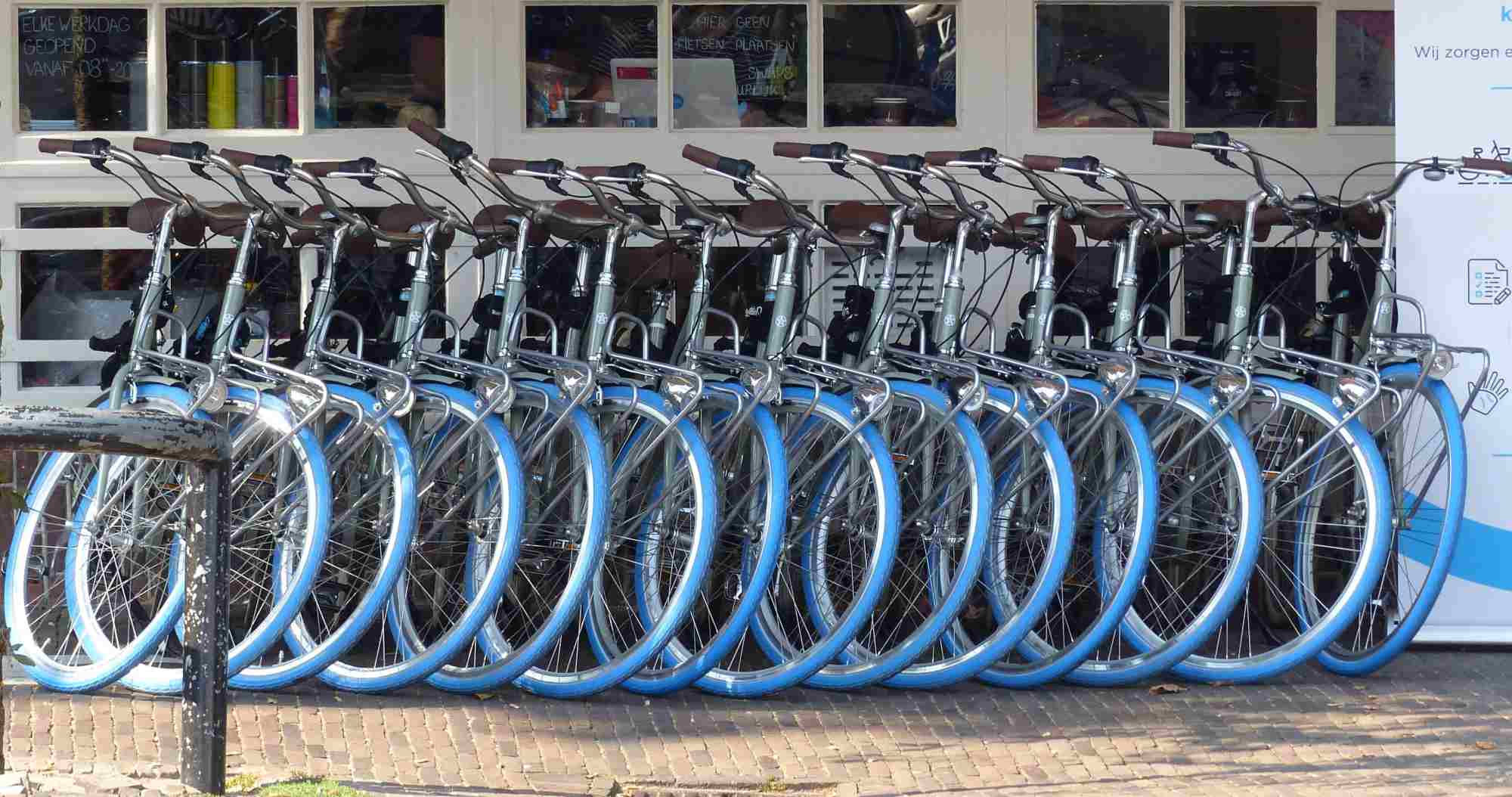

Attention Economy: Why Rental Business Owners Need to Know About It
In today’s fast-paced digital world, attention is a precious commodity, and the ability to capture it can make or break a business

As technology advances and society shifts towards sustainability, the rental economy is quickly becoming the preferred option for consumers across various industries. In this article, we will explore how the rental economy is here to stay, from the rise of zero ownership to personalized outcomes, and how consumers’ purchasing preferences have evolved.
The rental economy has been around for a while, but it has gained significant momentum in recent years due to advances in technology and changes in consumer behavior. With the advent of online rental platforms, renting goods and services has become more accessible, convenient, and cost-effective than ever before. The rise of the rental economy can also be attributed to growing concerns about sustainability and the impact of consumerism on the environment. Renting offers a more sustainable alternative to buying, as it reduces the need for new production and minimizes waste. Consumers are now more aware of the environmental impact of their choices and are increasingly choosing to rent instead of buy.
The sharing economy has become a popular trend, particularly among millennials and Gen Z, who are looking for more flexibility and options in their consumption patterns. The sharing economy offers varied choices, from renting a luxury car for a weekend getaway to renting a designer dress for a special event. It provides access to high-end products and services without the hefty price tag associated with ownership. With the rise of sharing economy platforms like Airbnb, Turo, and Rent the Runway, consumers can now rent a wide range of goods and services, from apartments and cars to clothing and electronics. The sharing economy also promotes a sense of community and collaboration, as people share resources and make use of what’s available instead of buying new.
The younger generations’ perspective on ownership has evolved significantly in recent years, largely due to rising student loan debt and the fluctuating housing market. In the early 2000s, when millennials were beginning their careers, they deferred buying new homes due to the falling housing market. Today, the situation is similar, with younger millennials and Gen Z preferring the flexibility that renting offers. With the rising cost of education and living expenses, many young people are hesitant to take on the financial burden of ownership. They see renting as a more practical and cost-effective option, as it provides them with the freedom to move around and pursue their careers without being tied down to a particular location or asset. Renting also allows them to access goods and services that they might not be able to afford otherwise. As a result, the rental economy has become an attractive option for millennials and Gen Z who value flexibility, sustainability, and cost-effectiveness.
The rental economy offers several benefits, such as affordability, convenience, and sustainability. Consumers can access products and services without committing to long-term ownership, which saves them money in the long run. Renting is also more convenient, as it eliminates the need for maintenance and storage. Additionally, renting reduces waste and is more sustainable, as products are reused and shared among many people.
The rental industry has experienced remarkable growth over the years, with projections suggesting it will reach a value of over $335 billion by 2025. The growth can be attributed to various factors, including increased awareness of sustainability and the rise of the sharing economy. Technological advancements have also played a significant role in making renting more accessible and convenient. Today, consumers can easily rent everything from cars to apartments, and even high-end fashion and accessories.
Several key players have emerged in the rental market, and they have disrupted traditional industries such as hospitality, transportation, and fashion. For instance, Airbnb has transformed the hospitality industry by allowing homeowners to rent out their properties to travelers, while Uber has revolutionized the transportation industry by offering affordable and convenient rideshare services. Rent the Runway has disrupted the fashion industry by offering a rental service for high-end designer clothing and accessories. These companies have made renting more mainstream and accessible than ever before.
Rental software is a major key factor in the transition from ownership to usership. An increasing number of rental merchants subscribes to rental software modules that allows them to compete on fair grounds with P2P rentals. This means that they are digitalizing the tradiotioal off line store with modern booking systems and inventory management systems, with prepayment options.
The COVID-19 pandemic has significantly impacted the rental economy, with many consumers turning to rentals as a safe and convenient option. For instance, many people have opted to rent cars instead of using public transportation, and others have rented vacation homes instead of staying in hotels. The pandemic has also highlighted the importance of sustainability and flexibility, as people reassess their priorities and needs. As a result, rental companies that offer flexible and sustainable options are likely to thrive in the post-pandemic world.
The rental economy is poised for further growth and innovation, with several trends on the horizon. One trend is peer-to-peer rentals, which allows individuals to rent out their personal belongings to others. Another trend is subscription-based models, where consumers can subscribe to a service and rent items on a regular basis. Virtual rental experiences are also becoming more popular, allowing consumers to rent items such as cars and apartments without physically being there. These trends are driven by consumer demand for more personalized and sustainable options, and they are likely to shape the future of the rental economy.
In addition to the trends mentioned earlier, technology is playing a crucial role in the growth and innovation of the rental economy. The implementation of rental software has made it easier for businesses to manage their inventory, streamline their processes, and offer a seamless rental experience to their customers.
One of the most significant developments in recent years is the fast implementation of rental ecommerce. This allows customers to browse and rent items online, without the need to visit a physical store. This trend has been accelerated by the pandemic, with many customers preferring to shop online rather than in-person.
For traditional offline shops, this presents an opportunity to tap into the new generation of the rental economy. By implementing rental software and creating an online rental store, they can reach a wider audience and offer a more convenient and personalized rental experience.
In addition to the convenience factor, rental software also provides valuable insights into customer behavior and preferences. This data can be used to optimize inventory management, pricing strategies, and marketing efforts, leading to increased profitability and customer satisfaction.
Overall, the future of the rental economy is bright, with technology driving growth and innovation. Businesses that embrace these trends and adapt to the changing market are poised for success in the years to come.
If you are a rental merchant, there are several steps you can take to tap into the growing rental market. First, it is essential to have a user-friendly website that showcases your products or services and allows customers to easily book rentals online. You can also consider partnering with popular rental platforms, such as Airbnb or Rent the Runway, to expand your reach and increase visibility.
To streamline your rental business and enhance the customer experience, you can also implement rental software. This software can help automate tasks such as inventory management, booking, and payments, making the rental process smoother and more efficient for both you and your customers. It can also provide valuable data insights that can help you optimize your rental strategy and improve your bottom line.
In addition to having a strong online presence and using rental software, it is important to focus on sustainability and flexibility in your rental offerings. Consider offering eco-friendly options, such as electric vehicles or reusable event decor, and flexible rental options, such as extended rental periods or cancellation policies.
Overall, tapping into the rental economy requires a combination of innovation, sustainability, and customer-centricity. By adopting new technologies, partnering with rental platforms, and offering personalized and eco-friendly rental options, you can position your business for success in this growing market.
In conclusion, the rental economy is here to stay and is expected to continue its growth trajectory in the coming years. The rise of the sharing economy, increased awareness of sustainability, and technological advancements have all contributed to this growth. The pandemic has also had a significant impact on the rental economy, with many consumers opting for rentals as a safe and flexible option.
As the rental industry continues to evolve, businesses must keep up with the latest trends and technologies to tap into this market. Peer-to-peer rentals, subscription-based models, and virtual rental experiences are just some of the trends that are likely to shape the future of the rental economy.
One way for traditional brick-and-mortar businesses to tap into the rental market is by implementing rental software and transitioning to rental e-commerce. This will allow them to reach the younger generation of consumers who are more likely to rent than own. It will also provide a more convenient and sustainable option for customers who value flexibility and variety.
Overall, the rental economy offers numerous benefits to both consumers and businesses alike. With its continued growth and innovation, it is an exciting time to be a part of this industry.
Is renting really more sustainable than owning?
Yes, renting can be more sustainable than owning, as it reduces the environmental impact of producing and disposing of goods.
What are the benefits of renting over owning?
Renting offers more flexibility and affordability, as well as access to high-end products and services without the hefty price tag associated with ownership.
Can I rent anything I want?
There are many items and services that can be rented, including cars, apartments, clothing, and even household appliances.
How has technology impacted the rental industry?
Technology has made renting more accessible and convenient than ever before, with online platforms and mobile apps that allow consumers to rent items with just a few clicks.
What are some emerging trends in the rental industry?
Emerging trends in the rental industry include peer-to-peer rentals, subscription-based models, and digital rental experiences, driven by consumer demand for more personalized and sustainable options.
If you have a good friend or know someone who would have found this article interesting, then feel free to share it with them via email, Linkedin or Facebook .